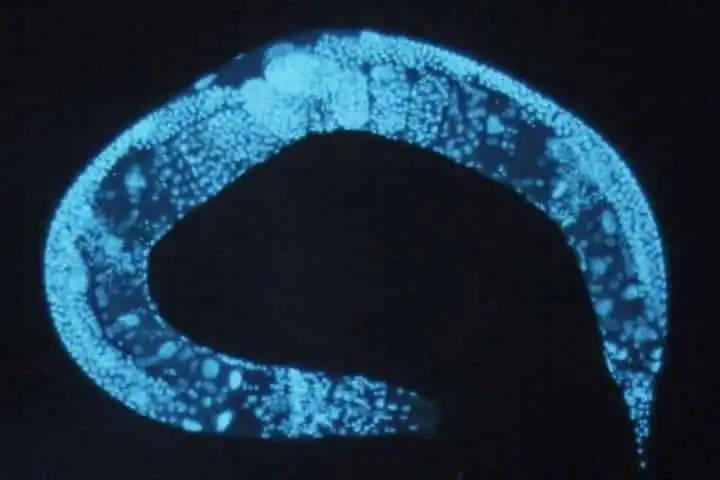

Researchers revived two of the worms by simply rehydrating them with water (Representational image)
Scientists have revived a worm that was frozen 46,000 years ago, CNN reported.
The roundworm, of a previously unknown species, survived 40 meters (131.2 feet) below the surface in the Siberian permafrost in a dormant state known as cryptobiosis, according to Teymuras Kurzchalia, professor emeritus at the Max Planck Institute of Molecular Cell Biology and Genetics in Dresden and one of the scientists involved in the research, as per CNN.
Kurzchalia explained that organisms in a cryptobiotic state can endure the complete absence of water or oxygen and withstand high temperatures, as well as freezing or extremely salty conditions. They remain in a state “between death and life,” in which their metabolic rates decrease to an undetectable level.
He said: “One can halt life and then start it from the beginning. This a major finding.” He added that organisms previously revived from this state had survived for decades rather than millennia.
Five years ago, scientists from the Institute of Physicochemical and Biological Problems in Soil Science in Russia found two roundworm species in the Siberian permafrost.
One of the researchers, Anastasia Shatilovich, revived two of the worms at the institute by simply rehydrating them with water, before taking around 100 worms to labs in Germany for further analysis, according to CNN.
The scientists after thawing the worms, used radiocarbon analysis of the plant material in the sample to establish that the deposits had not been thawed since between 45,839 and 47,769 years ago.
But still, they didn’t know whether the worm was a known species. Eventually, genetic analysis conducted by scientists in Dresden and Cologne showed that these worms belonged to a novel species, which researchers named Panagrolaimus kolymaenis.
Researchers also found that the P. kolymaenis shared with C. elegans — another organism often used in scientific studies — “a molecular toolkit” that could allow it to survive cryptobiosis. Both organisms produce a sugar called trehalose, possibly enabling them to endure freezing and dehydration.
Research group leader of the Institute of Zoology at the University of Cologne and one of the scientists involved in the study, Philipp Schiffer, said: “To see that the same biochemical pathway is used in a species which is 200, 300 million years away, that’s really striking. It means that some processes in evolution are deeply conserved.”
And, Schiffer added, there are other actionable insights which can be understood by studying these organisms.
“By looking at and analyzing these animals, we can maybe inform conservation biology, or maybe even develop efforts to protect other species, or at least learn what to do to protect them in these extreme conditions that we have now,” he told CNN.
As Prime Minister Narendra Modi has been conferred the national honour of Ghana, Officer of…
External Affairs Minister S Jaishankar held a meeting with FBI Director Kash Patel in Washington…
US State Department Deputy Spokesperson Mignon Houston on Wednesday (local time) said that India is…
India and Ghana signed four Memoranda of Understanding (MoUs) on Wednesday to strengthen bilateral cooperation…
Follower of the Dalai Lama expressed their elation at his statement that Gaden Phodrang Trust…
The Foreign ministers of the Quad nations met in Washington, DC, on July 1 to…